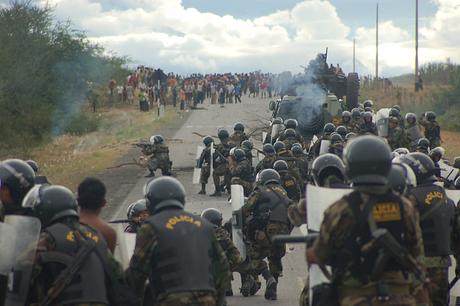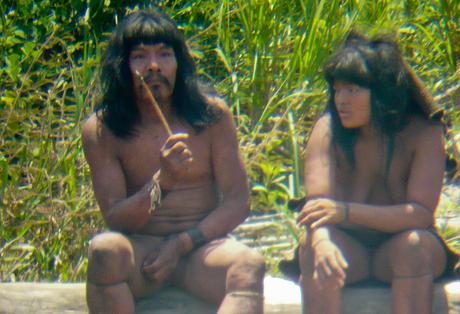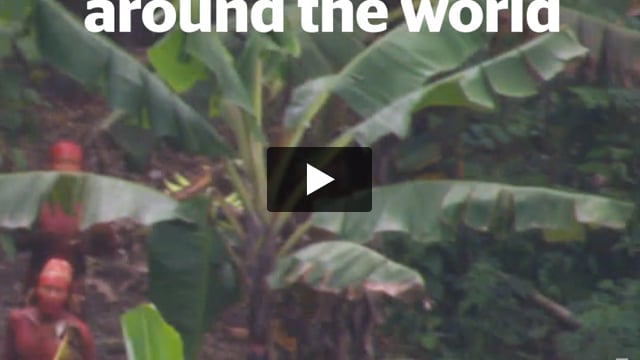Amnesty: Peru should suspend oil companies working on Indigenous land
December 12, 2009
 © Independent journalist courtesy of Amazon Watch
© Independent journalist courtesy of Amazon WatchThis page was last updated in 2009 and may contain language which is now outdated.
Amnesty International (AI) is ‘urgently’ pressing the Peruvian government to suspend companies whose work could affect the rights of Indigenous people.
AI makes the recommendation in a new report, ‘Peru: Bagua, six months on’, published six months after armed police attacked a peaceful Indigenous protest at Bagua, northern Peru.
The report urges Peru’s government ‘to review urgently all concessions that have been granted to extractive industries in areas where such activity could affect the rights of Indigenous Peoples, with a view to taking appropriate action to respect and protect human rights; no activity should take place in these concession areas until the review is complete; the review must include a clear process of consultation with affected communities.’
AI’s call comes after the government has granted more than 70% of the Peruvian Amazon to oil and gas companies, and has announced plans to increase that figure early in 2010. It echoes a recommendation made by the United Nations earlier this year when it told Peru it should not allow oil and gas drilling on Indigenous peoples’ land without their ‘informed consent’.
Companies potentially affected include those working on land inhabited by uncontacted tribes, such as Perenco and Repsol-YPF. Many Indigenous communities in Peru reject the presence of companies working in extractive industries, such as oil, gas, mining or timber, on their land.
Survival’s director, Stephen Corry, said today, ‘It’s critical that Peru’s government hears what Amnesty is saying. The tragic events at Bagua happened because the government tried to give away Indigenous land without the consent of the people who have lived there for hundreds of years. The government is still trying to do this and does not appear to have learnt its lesson.’




